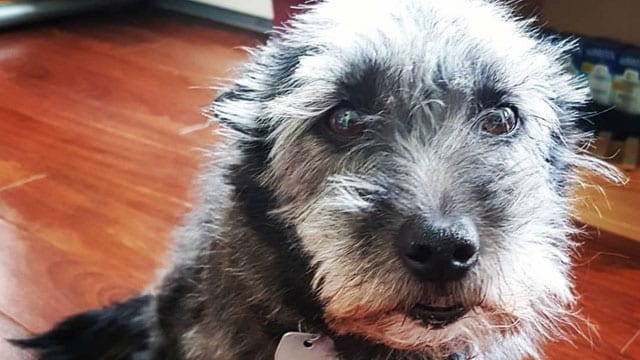
Here is a sentence that only makes sense if you know a little Inuktitut – every time I take my qimmiq for a walk, we meet qimmiit named “Qimmiq.”
Qimmiq is Inuktitut for dog – qimmiit is plural- and every time I take my dog for a walk in Iqaluit, we meet dogs named “dog.”
We’ve met dogs named “Nanuq” – polar bear in Inuktitut – and a dog named Nuna which translates to land, which is why Nunavut has its name, Nunavut means our land.
Most often, these dogs with Inuktitut names are owned and named by non-Inuit.
The dogs we meet named by Inuit families generally have names in English (or Inuktitut names that don’t translate to “dog”).
There are exceptions on both sides, and Iqaluit’s dog culture is one of the areas where all Iqaluit’s residents join in. There are many, many dogs.
How many?
That is a hard figure to put an exact number on. In the last 10 years, the Iqaluit Humane Society has rescued and re-homed more than 7,500 dogs, in a city of just 7,000 people.
Their best guess at the current Iqaluit dog population is around 3,500.
I count eight dogs – not including ours – within 200 m of my home.
Traffic stopped for a stray isn’t just common in Iqaluit, it is routine. There is even an island in Frobisher Bay named “Dog Island”.
(These qimmiit are sled dog racing on Frobisher Bay. Check out the ropes and harnesses, they are fanned out in the traditional Inuit style. Beginning in the 1950s, these dogs were reduced in number drastically by the RCMP, forcing many Inuit to give up life on the land. Qimmiit in Nunavut are a long standing sensitive issue. APTN File)
Dogs have been more than just house pets for Inuit.
The Qikiqtani Truth Commission studied the changes in the eastern Arctic between the 1950s and 1970s, and one of those changes was in the dog population.
According to the report, in the 1950s, men were judged on the condition and ability of their dog team.
Qimmiit were transport for Inuit via sled, qimmiit would find a seal hole humans wouldn’t have noticed, and qimmiit were an alarm bell when wolves or bears approached.
And if the dog died, dog fur is ideal parka trim (that’s why Canada Goose still uses coyote fur to trim their parka hoods).
Read: The Truth Commission Report
Starting in 1950, RCMP were tasked with controlling dog populations in what is now Nunavut.
Many Inuit told the commission how they would visit a community, only to have the RCMP shoot their dogs.
This stranded those families in the community and took away their livelihood.
By the mid 1970s, almost all the qimmiit teams on Baffin Island were gone.
It was a disaster for Inuit.
So after meeting yet another qimmiq named Qimmiq, I had to wonder – considering what happened to Inuit dog teams and increasing scrutiny of cultural appropriation – is it OK that so many non-Inuit are using Inuktitut to name their dogs?
(This is Umik, a proud resident of the Apex neighbourhood in Iqaluit and a member of the Watson family. Umik means “mustache” in Inuktitut, and you can easily see how he earned that name. Photo courtesy: Marlene Watson)
When you have a question like that, time to turn to Twitter, which responded with a firm, ‘Maybe?” At the time of this writing, the poll is deadlocked 50/50, but the responses are far more interesting than the arbitrary vote.
Poll Link:
Non-Inuit giving dogs Inuktitut names. Yea or nay (because if I meet another dog named Qimiq, I'm gonna lose it.)
— Kent Driscoll (@KentDriscoll) April 24, 2019
Jimi Onalik used to work at the airport in Rankin Inlet, and remembers one “teacher escape day” – first day after classes end and all the imported teachers fly south, usually on the same flight – where it got out of hand.
When I was working luggage on teacher escape day in Rankin, there were six dog kennels lined up for the Winnipeg flight. Four “Qimmiq”’s and two “Nanuq”’s. Someone said “Hey Qimmiq” and the place went nuts.
— Jimi Onalik (@kivalliqboy) April 25, 2019
Ryan Oliver is the man behind the Pinnguaq program that teaches computer coding to Nunavut youth. He started the program in nearby Pangnirtung, and he noticed the odd naming conventions.
Pangnirtung 2014
All Qallunaat owned dogs have Inuktitut names (Nanuq, Siku, Takulik)
All Inuit owned dogs have English names (Rex, Dog, Spot)
Definitely an exaggeration to say 'all'… But more impactful for the purpose of this tweet!
— Ryan Oliver (@NuRyanOliver) April 25, 2019
Bernadette Dean is the Chair of the Inuit Broadcasting Corporation, and she understands the value of a good name for a dog, and good mitts.
https://twitter.com/BernadetteDean2/status/1121273292038524928
Maybe the definitive word goes to filmmaker Alethea Arnaquq-Baril, producer of The Grizzlies and maker of the acclaimed documentary Angry Inuk.
I actually don’t mind when they give them an Inuktitut name. It’s just dumb to name your dog…. “dog”.
— Alethea Arnaquq-Baril❄️ (@Alethea_Aggiuq) April 25, 2019
The poll is available for voting and commenting until Friday evening.









